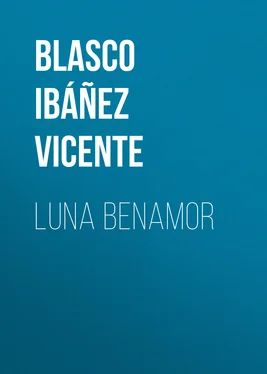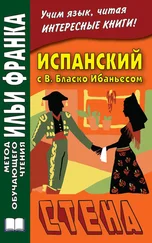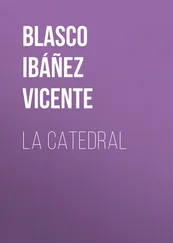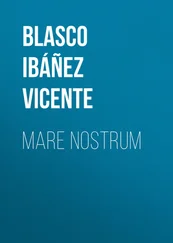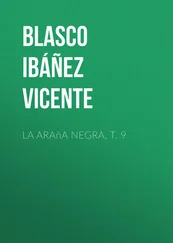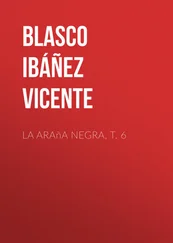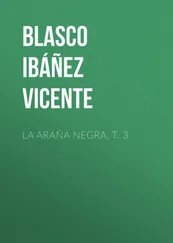Vicente Blasco Ibáñez - Luna Benamor
Здесь есть возможность читать онлайн «Vicente Blasco Ibáñez - Luna Benamor» — ознакомительный отрывок электронной книги совершенно бесплатно, а после прочтения отрывка купить полную версию. В некоторых случаях можно слушать аудио, скачать через торрент в формате fb2 и присутствует краткое содержание. Жанр: foreign_prose, foreign_antique, на английском языке. Описание произведения, (предисловие) а так же отзывы посетителей доступны на портале библиотеки ЛибКат.
- Название:Luna Benamor
- Автор:
- Жанр:
- Год:неизвестен
- ISBN:нет данных
- Рейтинг книги:5 / 5. Голосов: 1
-
Избранное:Добавить в избранное
- Отзывы:
-
Ваша оценка:
- 100
- 1
- 2
- 3
- 4
- 5
Luna Benamor: краткое содержание, описание и аннотация
Предлагаем к чтению аннотацию, описание, краткое содержание или предисловие (зависит от того, что написал сам автор книги «Luna Benamor»). Если вы не нашли необходимую информацию о книге — напишите в комментариях, мы постараемся отыскать её.
Luna Benamor — читать онлайн ознакомительный отрывок
Ниже представлен текст книги, разбитый по страницам. Система сохранения места последней прочитанной страницы, позволяет с удобством читать онлайн бесплатно книгу «Luna Benamor», без необходимости каждый раз заново искать на чём Вы остановились. Поставьте закладку, и сможете в любой момент перейти на страницу, на которой закончили чтение.
Интервал:
Закладка:
"We are English," declared the patriarch. "May the Lord preserve our king and send him much happiness; but we are Spaniards historically: Castilians, that is… Castilians."
He selected from the parchments one that was cleaner and fresher than the others, and bent over it his white, wavy beard and his tearful eyes.
"This is the wedding contract of Benamor with my poor daughter: Luna's parents. You can't understand it, for it's in Hebrew characters, but the language is Castilian, pure Castilian, as it was spoken by our ancestors."
And slowly, in an infantile voice, as if he relished the obsolete forms of the words, he read the terms of the contract that united the parties "in the custom of Old Castile." Then he enumerated the conditions of the marriage, the penalties either of the contracting parties might incur if the union were dissolved through his or her fault.
"'Such party will pay,'" mumbled the patriarch, "'will pay… so many silver ounces.' Are there still silver ounces in Castile, señor consul?"…
Luna, in her conversations with Aguirre, demonstrated an interest as keen as that of her old grandfather in the beautiful land, the far-off, remote, mysterious land,—in spite of the fact that its boundary was situated but a few steps away, at the very gates of Gibraltar. All she knew of it was a little fisherman's hamlet, beyond La Línea, whither she had gone with her family on their summer vacations.
"Cadiz! Seville! How enchanting they must be!… I can picture them to myself: I have often beheld them in my dreams, and I really believe that if I ever saw them they wouldn't surprise me in the least.... Seville! Tell me, Don Luis, is it true that sweethearts converse there through a grating? And is it certain that the maidens are serenaded with a guitar, and the young men throw their capes before them as a carpet over which to pass? And isn't it false that men slay one another for them?… How charming! Don't deny all this. It's all so beautiful!…"
Then she would summon to memory all her recollections of that land of miracles, of that country of legends, in which her forebears had dwelt. When she was a child her grandmother, Samuel Aboab's wife, would lull her to sleep reciting to her in a mysterious voice the prodigious events that always had Castile as their background and always began the same: "Once upon a time there was a king of Toledo who fell in love with a beautiful and charming Jewess named Rachel...."
"Toledo!"… As she uttered this name Luna rolled her eyes as in the vagueness of a dream. The Spanish capital of Israel! The second Jerusalem! Her noble ancestors, the treasurer of the king and the miraculous physician, had dwelt there!
"You must have seen Toledo, Don Luis. You surely have been there. How I envy you!… Very beautiful, isn't it? Vast! Enormous!… Like London?… Like Paris? Of course not.... But certainly far larger than Madrid."
And carried away by the enthusiasm of her illusions she forgot all discretion, questioning Luis about his past. Indubitably he was of the nobility: his very bearing revealed that. From the very first day she had seen him, upon learning his name and his nationality, she had guessed that he was of high origin. A hidalgo such as she had imagined every man from Spain to be, with something Semitic in his face and in his eyes, but more proud, with an air of hauteur that was incapable of supporting humiliations and servility. Perhaps he had a uniform for festive occasions, a suit of bright colors, braided with gold… and a sword, a sword!
Her eyes shone with admiration in the presence of this hidalgo from the land of knights who was dressed as plainly as a shopkeeper of Gibraltar, yet who could transform himself into a glorious insect of brilliant hues, armed with a mortal sting. And Aguirre did not disturb her illusions, answering affirmatively, with all the simplicity of a hero. Yes; he had a golden costume, that of the consul. He possessed a sword, which went with his uniform, and which had never been unsheathed.
One sunny morning the pair, quite unconsciously, took the path to the Alameda. She made anxious inquiries about Aguirre's past, with indiscreet curiosity, as always happens between persons who feel themselves attracted to each other by a budding affection. Where had he been born? How had he spent his childhood? Had he loved many women?…
They passed beneath the arches of an old gate that dated back to the time of the Spanish possession, and which still preserved the eagles and the shields of the Austrian dynasty. In the old moat, now converted into a garden, there was a group of tombs,—those of the English sailors who had died at Trafalgar. They walked along an avenue in which the trees alternated with heaps of old bombs and cone-shaped projectiles, reddened by rust. Further on, the large cannon craned their necks toward the gray cruisers of the military harbor and the extensive bay, over whose blue plain, tremulous with gold, glided the white dots of some sailing vessels.
On the broad esplanade of the Alameda, at the foot of the mountain covered with pines and cottages, were groups of youths running and kicking a restless ball around. At that hour, as at every hour of the day, the huge ball of the English national game sped through the air over paths, fields and garrison yards. A concert of shouts and kicks, civil as well as military, rose into the air, to the glory of strong and hygienic England.
Конец ознакомительного фрагмента.
Текст предоставлен ООО «ЛитРес».
Прочитайте эту книгу целиком, на ЛитРес.
Безопасно оплатить книгу можно банковской картой Visa, MasterCard, Maestro, со счета мобильного телефона, с платежного терминала, в салоне МТС или Связной, через PayPal, WebMoney, Яндекс.Деньги, QIWI Кошелек, бонусными картами или другим удобным Вам способом.
Интервал:
Закладка:
Похожие книги на «Luna Benamor»
Представляем Вашему вниманию похожие книги на «Luna Benamor» списком для выбора. Мы отобрали схожую по названию и смыслу литературу в надежде предоставить читателям больше вариантов отыскать новые, интересные, ещё непрочитанные произведения.
Обсуждение, отзывы о книге «Luna Benamor» и просто собственные мнения читателей. Оставьте ваши комментарии, напишите, что Вы думаете о произведении, его смысле или главных героях. Укажите что конкретно понравилось, а что нет, и почему Вы так считаете.
